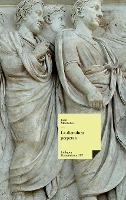Juan Montalvo es uno de los más grandes pensadores de América Latina. Vivió en el siglo XIX, durante un período de inestabilidad política y restricciones de las libertades públicas. Pasó la vida defendiendo la libertad de prensa y combatiendo las tiranías y el clericalismo. Se enfrentó sin descanso contra los gobiernos autoritarios y sufrió por ello persecuciones que lo mantuvieron exilado de su patria, el Ecuador, por largas temporadas.Buena parte de la producción de Montalvo tiene como finalidad defender los valores del libre pensamiento y el derecho a la libertad de conciencia.En 1874, apareció un artículo en el periódico panameño Star and Herald, donde se ensalzaban los logros de Gabriel García Moreno como presidente y se apoyaba su candidatura a la tercera reelección. Montalvo se indignó y escribió la misiva que aquí publicamos al diario, bajo el titulo de La dictadura perpetua. En ella su prosa mordaz y directa ponía en relieve las perversiones del gobierno de García Moreno.Este texto, subtitulado, canto a la libertad y a la lucha contra la tiranía, se leyó clandestinamente en Ecuador y contribuyó a quitar la venda de los ojos de nuestros antepasados, no llegó a Ecuador hasta mayo de 1875.La dictadura perpetua es un retrato del poder ejercido en sus extremos. Construido, a través del análisis del carácter y la psicología de un dictador. El libro inspiró a un grupo de jóvenes liberales a ejecutar a Gabriel García Moreno, entonces presidente del Ecuador, el 6 de agosto de 1875.Muchas de las ideas que aparecen en La dictadura perpetua siguen teniendo total vigencia en el presente:¿A dónde van a parar los principios democráticos, a dónde las instituciones liberales, a dónde los derechos de los pueblos, a dónde la justicia, a dónde el pundonor, a dónde la dignidad humana, a dónde la libertad, a dónde la esperanza?¡Desdichado, por otra parte, el pueblo donde la revolución viniese a ser imposible!

